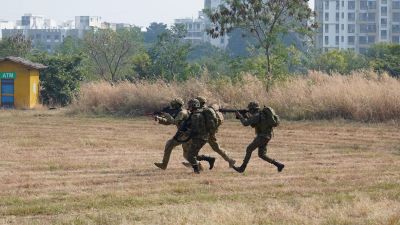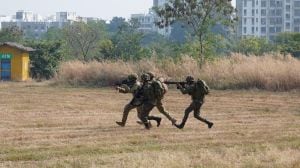Bush and Putin: a tad cooler to each other
In some ways, it is still possible to sustain the illusion that these "two leaders of great nations" (Bush) are equal: their agreements on n...

In some ways, it is still possible to sustain the illusion that these “two leaders of great nations” (Bush) are equal: their agreements on nuclear security and Russia’s attempt to join the WTO are both important. But in the first case the need is dictated by post-Soviet problems of control over ageing nuclear weapons and materials and the fear that they might fall into the hands of terrorists, not by the danger of cold war-style mutually assured destruction. Less was said about the poor state of freedom on Mr Putin’s watch, despite Mr Bush’s warning in Brussels that Russia “must renew a commitment to democracy and the rule of law”. But he did speak of his “concerns”, about “the rule of law, protection of minorities and a free press and a viable political opposition”, while immediately paying tribute to the “tremendous progress and amazing transformation” that had taken place since the demise of the Soviet Union. He noted too …that democracy contained both universal principles as well as reflecting a country’s “culture and customs”. Hardly a stinging rebuke, but better than nothing… Mr Putin promised that there would be no return to “authoritarianism”, but warned that democracy was not “anarchy”. Beyond that, there were no promises. None of this sits easily with Mr Bush’s strident emphasis on democracy… Mr Bush’s words will have been monitored carefully elsewhere in Europe. The EU has little to show for its much-vaunted “strategic partnership” with Moscow, which precludes speaking out about Mr Putin’s hardline Chechnya policy. It’s a reminder that however big, different and difficult Russia is, it must not be allowed to escape criticism.
Excerpted from an editorial in ‘The Guardian’, February 25





- 01
- 02
- 03
- 04
- 05


























